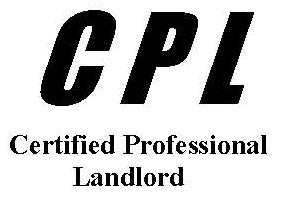If you recall from Part 1 of my article on what is working today in real estate, the market has changed quite a bit from the high inventory levels and multitude of foreclosures back in 2008. Today inventory is tighter, prices are appreciating (at least a little), and foreclosures and short sales are a smaller segment of the marketplace. Just to summarize numbers 1 through 5 of the previous article. (1) Interest rates are at incredible lows. (2) Buy some rentals at these low interest rates. (3) Purchasing with creative financing. (4) Selling with creative financing. (5) Short sales. Those 5 things are definitely working in 2013. So are the next 5 things.
(6) Assigning your interest in creative financing deals. You can buy with creative financing, and you can sell with creative financing. Creative financing deals are in high demand but only in moderate to small supply. Most owners are not thinking of creative financing, but would entertain it to get out from under the burden of their mortgage. By creative financing I mean pretty much any deal where the seller finances it or the existing loan does not get paid off. This can be owner financing, subject to, lease option, lease purchase, contract for deed, wraparound, etc. It is very possible to structure a creative financing deal with a low down payment and reasonable monthly payment. Then assign your deal to an end buyer in return for an assignment fee. For instance you structure a deal as follows: Purchase price $150,000, seller will finance with $10,000 down and $1100 per month. You flip your contract to an end buyer for $160,000 price and $20,000 down. Then you give $10,000 to the seller for the down payment and put $10,000 in your pocket as the assignment fee. You step out of the deal while end buyer makes the payments directly to the seller. Then move on to the next deal and do it again.
 (7) Traditional sales - targetting FSBOs and not the MLS. Realtors® do this all the time. They find sellers whose properties are not yet listed. Then they sign a listing agreement for 5-6% or so commission and get the property up for sale and in the MLS (Realtor® multiple-listing service). Then all the buyers including investors clamor to make offers on these newly listed properties. You can do exact what Realtors® are doing; contact sellers directly and get them to sell to you. Things like running ads in print or online, driving neighborhoods, direct mail, referrals from people you know, and calling FSBOs really do generate good leads. That way you are not fighting over the last listed property in MLS along with 10 other buyers. Keep in mind that right now in 2013 that about 50% of all properties in the MLS are regular sales and not bank owned or short sale. Where do you think the listing agents are getting those 50% of the listings from?
(7) Traditional sales - targetting FSBOs and not the MLS. Realtors® do this all the time. They find sellers whose properties are not yet listed. Then they sign a listing agreement for 5-6% or so commission and get the property up for sale and in the MLS (Realtor® multiple-listing service). Then all the buyers including investors clamor to make offers on these newly listed properties. You can do exact what Realtors® are doing; contact sellers directly and get them to sell to you. Things like running ads in print or online, driving neighborhoods, direct mail, referrals from people you know, and calling FSBOs really do generate good leads. That way you are not fighting over the last listed property in MLS along with 10 other buyers. Keep in mind that right now in 2013 that about 50% of all properties in the MLS are regular sales and not bank owned or short sale. Where do you think the listing agents are getting those 50% of the listings from?
(8) Wholesaling to hedge funds. Institutional hedge fund investors are plunging billions of dollars into rental real estate right now. They are buying everything that makes sense at the courthouse foreclosure auctions and out of the MLS. Then they hold onto them as cash-flowing rentals in hopes of a reasonable rate of return and some decent future appreciation. MLS and foreclosure auction inventory is low. So why not find those unlisted FSBO properties and sell them to these hedge fund investors. The hedge funds are buying aggressively right now. In 2013, I have already sold 3 of my personal rehab deals directly to hedge funds simply by listing them in the MLS and letting the hedge fund investor buy them. Hedge funds pay all cash with no appraisal, minimal inspection, and no game playing. I keep getting more and more calls from Realtors® that represent hedge funds and looking for unlisted properties that they can buy.
(9) Buy, rehab, and sell retail. With inventory as low as it is, there is plenty of pent-up demand from owner-occupant end buyers. Twice in the last few months, I have seen owner occupants pull money out of their retirement accounts so that they could pay cash for a house. Buyers get tired of missing out on houses because som e hedge fund or cash investor beat them out. So if you buy junker houses, fix them up to FHA (Federal Housing Administration) financing standards, and then sell them at retail prices, you can typically sell for top dollar - often with multiple offers from solid buyers. This is especially true with buyers who are sick of looking at beat up bank foreclosures and short sales. It is a treat for them to see a nice pretty house all ready for a new family. And despite what you may hear, banks are lending money again.
e hedge fund or cash investor beat them out. So if you buy junker houses, fix them up to FHA (Federal Housing Administration) financing standards, and then sell them at retail prices, you can typically sell for top dollar - often with multiple offers from solid buyers. This is especially true with buyers who are sick of looking at beat up bank foreclosures and short sales. It is a treat for them to see a nice pretty house all ready for a new family. And despite what you may hear, banks are lending money again.
(10) Home building. For many years, building new homes did not work because there was so much excess inventory and prices were so depressed. It simply did not make economic sense to build new homes because you could buy foreclosure houses for way cheaper than you could build them. But times they are a-changing. Prices are rising and inventory is low. Drive around on the edge of town on Sunday afternoon and you will see builders are back in business. Pick up the newspaper and flip to the real estate section; builders are advertising again. Vacant land still sells for very cheap. And land sellers often will sell with creative financing at “dirt” cheap prices. There is lots of room for upward movement for home builders right now.
So there you have it, 10 things that are working profitably in Florida real estate in 2013. I see investors making tons of money using these very techniques right now. What you do today when the market is at a bottom and prices are still low, will determine greatly where you will be a decade or two from now when the market has long since recovered. If I can help you with your real estate investing, feel free to contact me anytime. Here’s to your success!







Comments(1)